





Colorado Law – Understanding Threatening Criminal Prosecution To Gain An Advantage In Civil Litigation Cases
by Colorado Criminal Defense Lawyer – H. Michael Steinberg
Introduction – The threat to “call the police” if an alleged victim is not paid a sum of money can constitute the Colorado crime of compounding..a misdemeanor. If, however, the victim’s demand is an amount of money that the alleged victim “reasonably believes” is the same amount that would be ordered as restitution in the criminal case – this amounts to a legal defense to the criminal charges.
The Colorado Law of Compounding
Here is the Law – (It is simple to understand):
The Colorado Crime of Compounding 18-8-108.
18-8-108. Compounding
(1) A person commits compounding if he accepts or agrees to accept any pecuniary benefit as consideration for:
(a) Refraining from seeking prosecution of an offender; or
(b) Refraining from reporting to law enforcement authorities the commission or suspected commission of any crime or information relating to a crime.
(2) It is an affirmative defense to prosecution under this section that the benefit received by the defendant did not exceed an amount which the defendant reasonably believed to be due as restitution or indemnification for harm caused by the crime.
(3) Compounding is a class 3 misdemeanor.
18-1-407. Affirmative defense
(1) “Affirmative defense” means that unless the state’s evidence raises the issue involving the alleged defense, the defendant, to raise the issue, shall present some credible evidence on that issue.
(2) If the issue involved in an affirmative defense is raised, then the guilt of the defendant must be established beyond a reasonable doubt as to that issue as well as all other elements of the offense.
A Lawyer’s ethical duty in this area goes even further than Compounding
The basis for this caution is RULE 4.5, of the Colorado Rules of Professional Conduct. Rule 4.5, THREATENING PROSECUTION provides as follows:
a. A lawyer shall not threaten to present criminal, administrative or disciplinary charges to obtain an advantage in a civil matter nor shall a lawyer present or participate in presenting criminal, administrative or disciplinary charges solely to obtain an advantage in a civil matter.
b. It shall not be a violation of Rule 4.5 for a lawyer to notify another person in a civil matter that the lawyer reasonably believes that the other’s conduct may violate criminal, administrative or disciplinary rules or statutes.
Rule 4.5 is based upon Disciplinary Rule 7-105(A) and Ethical Consideration 7-21. DR 7-105 proscribed threatening “to present criminal charges solely to obtain an advantage in a civil matter.”
Rule 4.5 does not alter or materially change the proscription and it is a violation of the lawyer’s oath to either threaten to present criminal charges, or to “participate in presenting criminal charges solely to obtain an advantage in a civil matter.”
Important Last Point
It is important to note that restitution is relevant until after a criminal defendant has been charged and convicted of criminal charges – the so called “restitution stage of the proceedings” at that point it is questionable that the threat – posed at that time was done solely to gain an advantage in a civil proceeding.
The Common Law of Compounding
Under the common law and most modern statutes a compounding offense consists of three basic elements: (1) knowledge of the crime; (2) the agreement not to prosecute or inform; and (3) the receipt of consideration. The offense is complete when there is an agreement to either withhold evidence of the crime, conceal it, or fail to prosecute it. A crime is not compounded when a person merely reacquires property previously stolen from him or her; the crime would further require that the return of the stolen property was conditioned on an agreement not to report or prosecute the crime.
The individual compounding the crime must be aware of the previous offense although the person who committed it need not be tried or convicted. The fact that the person who committed the previous crime is not tried until after the prosecution for compounding occurs is irrelevant.
The consideration can consist of anything of value, such as money, property, or a promise of monetary gain. Only the recipient of the consideration can be guilty of compounding an offense. Although the person who offers the consideration is not considered guilty of compounding a crime, he or she might be guilty of bribery.
At common law the compounding of any crime was an offense.
Other Articles of Interest:
- Colorado State Felonies – Criminal Impersonation (18-5-113)
- Colorado State Crimes – Felony Criminal Impersonation (18-5-113)
- The Wrong Person Is Arrested – Understanding Victim Defendant Representation In Colorado Domesitic Violence Cases
- The Colorado Felony Of Criminal Impersonation 18-5-113 – Why Lying To The Police About Your Identity Is A Bad Idea
- Colorado Criminal Law – Do I Have To Aid A Police Officer If Ordered? – 18-8-107






















